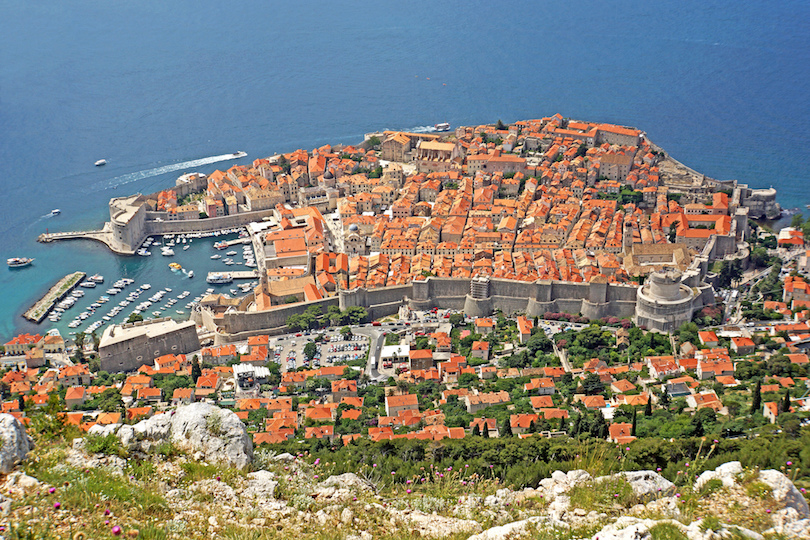5 top attractions in Slovenia and Croatia? The town of Korcula, the chief settlement on the island of the same name in South Dalmatia, sits snugly on a tiny peninsula. Protected by medieval walls and towers, its car-free stone alleys are laid out in a herringbone pattern so as to give shelter from the prevailing winds. Packed with centuries-old aristocratic stone buildings, Korcula was built at a time when the island was under Venetian rule. The top points of interest include Marco Polo house, said to be the birthplace of the renowned 13th-century explorer, while one of the best things to do is catch a performance of the moreska sword dance, a traditional dance staged for tourists just outside the town walls on summer evenings. For a truly special experience, you can reach Korcula’s historic town center by catamaran from Split (daily) or Dubrovnik (summer only).
Planica is home to the biggest ski jumping hill in the world. For over twenty years it has hosted one of the most important ski jumping competitions in the world. In 2015 Planica received a much-needed update, and the new Planica Nordic Center was built. Aside from the ski jumps the center also features an athletics stadium, a zipline, a wind tunnel, cycling and walking paths, and a visitor’s center. Planica zipline has the steepest descent in the world, which creates the sensations that ski jumping champions feel when flying through the air.
Gornji Grad is the medieval core of Zagreb and translates as Upper Town. It developed as two separate towns, Kaptol, the seat of the Bishop, and Gradec, the free town where tradesmen and artisans lived. The towns merged in the 1770s to form the northern section of historic Zagreb. The focal point of Gornji Grad is the square around St. Mark’s Church, the parish church of Old Zagreb.
For the love of Nature, one should visit Kornati National Park. To be honest, travel to Croatia doesn’t make much sense for tranquility-hunters unless they visit the Kornati Archipelago that is very often dubbed as nautical paradise. About 140 islands make up this National Park where dramatic caverns, cliffs, and caves of the tight-knit isles throw an awful lot of challenges. These islands are mostly made of Karst Limestone and offer excellent opportunities for hiking. Yes, for those tourists who love some real excitement, sailing through the National Park adds a whole new dimension. For those who are not big enthusiasts of ‘sail alone’ opportunity, the National Park offers guided tours from Split, Sibenik, and Zadar. Discover additional information at Pula weather.
Makarska Summer (Makarsko ljeto) takes place each year, running from mid June to early September. It includes a number of great events – music and theatre performances (traditional and modern), exhibitions and many more. Keep an eye out locally for news for upcoming events! For fish in Makarska, Peskera is one of the best options, the daily catch presented to guests before their choice is prepared in the classic Dalmatian fashion. This is also the place to try octopus or veal slow-cooked under a so-called bell or peka, and covered in hot embers. This ispod peke method requires at least a couple of hours to bring to perfection, so the usual custom is to order the day before or earlier that morning. The vegetables will have been grown nearby. A spacious terrace surrounded by greenery, close to the beach, completes the picture.
As the sunniest spot in Croatia, the island of Hvar draws tourists from all over the world. There’s something for everyone here, whether you’re looking for an exciting night out on the town or hoping to get close to nature. Hvar Town is the capital of the island, and it offers beautiful architecture, jam-packed beach bars, and plenty of elegant restaurants. Beautiful coves can be found on the isolated southern end of the island; these make for a great day trip. Hvar is also known for its lavender, olives, and wine, so head inland to admire ancient olive trees, beautiful craggy peaks, and rolling lavender fields. Read extra info on https://vreme-si.com/.
